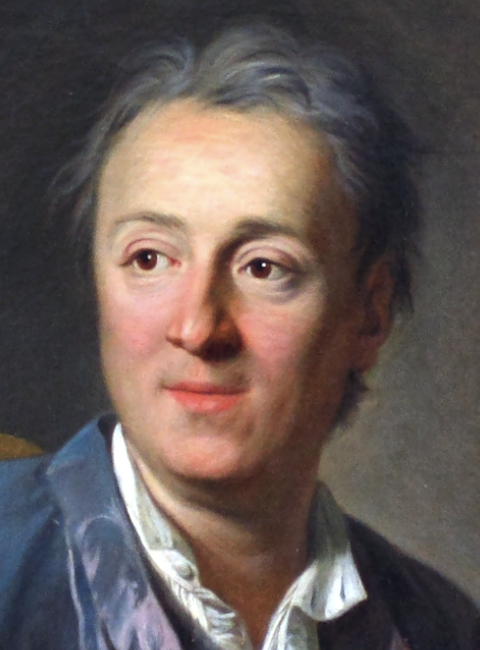On this date in 1713, philosopher Denis Diderot was born in Langres, France, and was destined by his lower-class family for the priesthood. At 13 he was tonsured and titled “abbe.” Continuing his studies in Paris, Diderot abandoned his faith when exposed to science and freethought views, evolving gradually from deist to atheist. In his Essay on the Merits of Virtue (1745), Diderot noted: “From fanaticism to barbarism is only one step.”
Diderot anonymously wrote Pensees philosophiques (Philosopical thoughts) in 1746, which was ordered burned in public. In it he wrote, “Skepticism is the first step toward truth.” After An Essay on Blindness was published in 1749, Diderot spent three months in jail for atheism, which taught him to only circulate his rationalist writings privately. His Interpretation of Nature (1753) sets out the scientific method. His treatises on aesthetics led him to be called the first art critic. His novels include La Religieuse (published posthumously in 1796), which took an unstinting look at the sexually corrupting forces of monasticism and fanaticism.
Diderot was the commissioned editor of the first major encyclopedia. He worked with rationalist contributors, including Voltaire, on this monument to the Age of Enlightenment, compiling human achievements in knowledge for nearly 30 years, while facing Catholic opposition. The 17 volumes of text and 11 of illustrations were published between 1751-72. The publisher at one time was imprisoned. Catherine the Great offered Diderot refuge, which he declined, but he accepted her grand gesture of purchasing his library and bequeathing it to him for life in 1766.
In 1773 he made the arduous journey to Russia to thank her, with hopes of setting up a Russian university. The trip disappointed him in her reign and broke his health. D. 1784.


